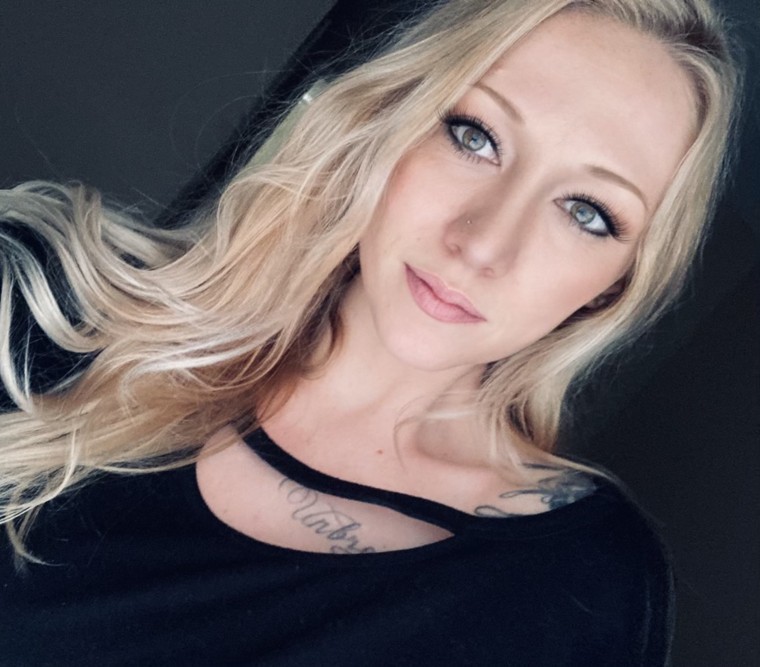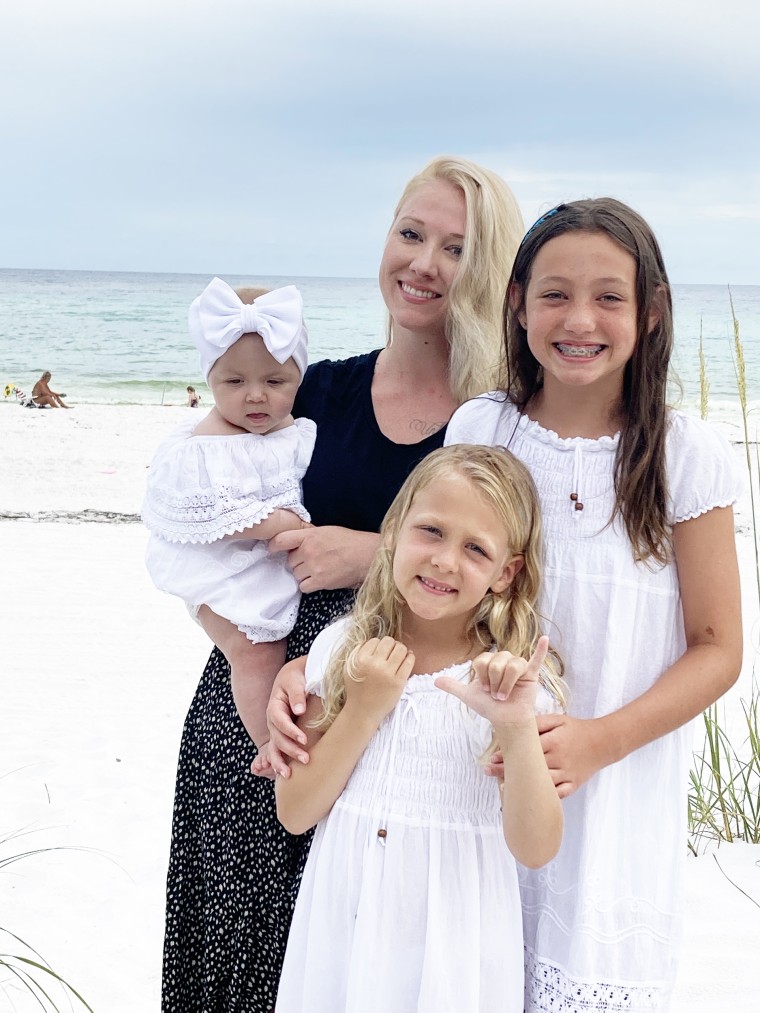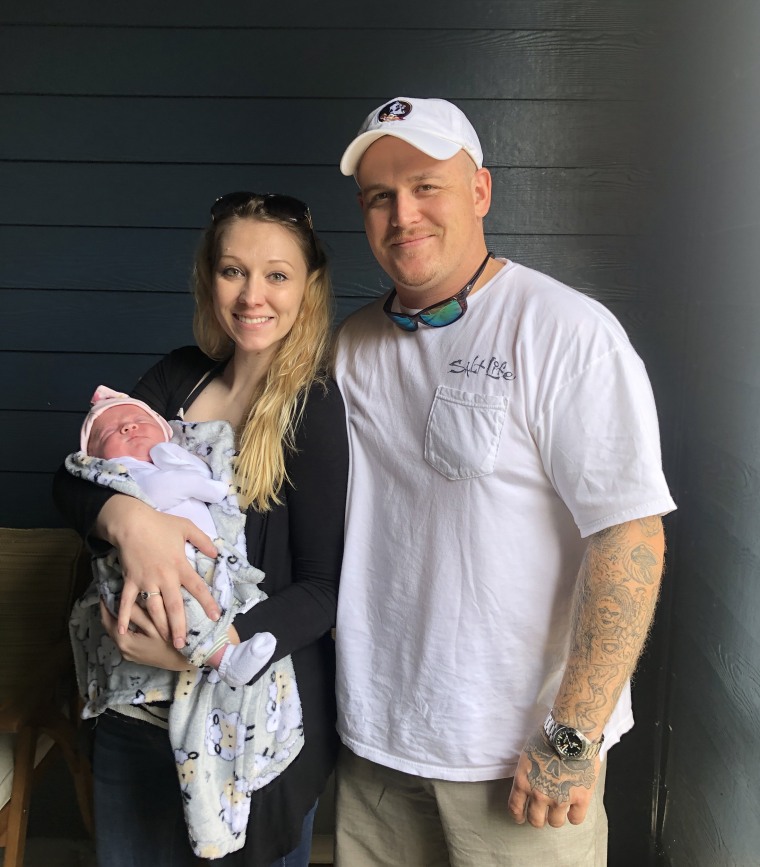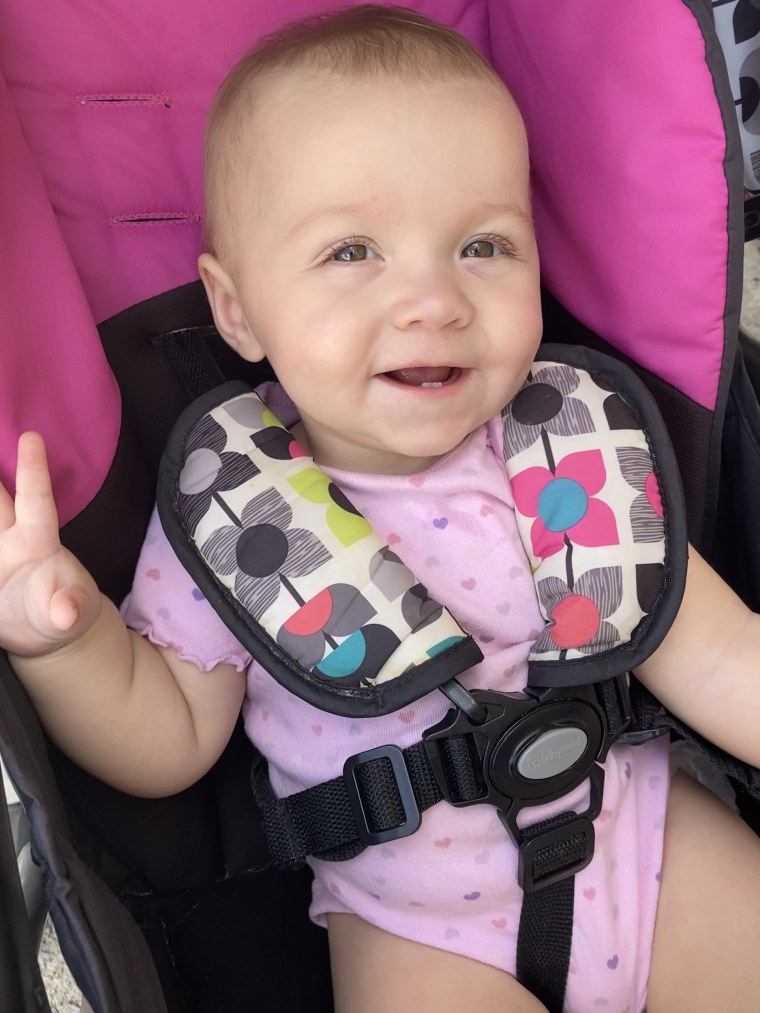Update: Elizabeth Holmes had her 11 year sentence reduced by two years, the Federal Bureau of Prisons confirmed to NBC. Her projected release date is now Dec. 29, 2032. No reason was given for the reduced sentence, and officials declined to comment further citing "privacy, safety and security reasons."
After Theranos founder Elizabeth Holmes was sentenced to 11 years in prison for fraud in the wake of her pregnancy reveal, she received sympathy.
Now that her child has been born, Holmes is mentioning her recent birth in an appeal to delay the start of her prison sentence, according to court documents obtained by NBC.
Her case continues to shine a light on a stark truth in the United States: An estimated 58,000 pregnant people are jailed or imprisoned every year, according to data collected by Johns Hopkins University School of Medicine's Pregnancy in Prison Statistics (PIPS) study.
While the experience of giving birth while in jail or prison varies widely, Dr. Carolyn Sufrin, an OB-GYN, associate professor and researcher at Johns Hopkins School of Medicine and author of "Jailcare: Finding the Safety Net for Women behind Bars” tells TODAY.com, "The common threads are that it's isolating, people don't really have a say over their birth experience, they often don't get very much time with their newborns and they may not get an opportunity to breastfeed or provide breast milk."
I asked where she was going and who was going to be in charge of her, but they said I wasn't allowed to know.
Hayley Rider
Hayley Rider, 28, is one mom who gave birth while serving time.
Rider says she didn't know she was pregnant when she arrived at Lee Arrendale State Prison, outside Atlanta, Georgia, in January of 2021. She had been sentenced to two years in prison and eight years of probation for a nonviolent drug offense.
Prison staff discovered Rider's pregnancy during a routine medical exam.
"I was shocked," Rider tells TODAY.com.

Rider says she was not immediately informed she was pregnant — just that she was being sent to another prison.
"(Lee Arrendale) is a pretty dangerous, very intense prison," Rider explains. "Pregnant offenders are not allowed to be there for safety reasons."
TODAY.com reached out to a Lee Arrendale spokesperson, who responded with a single sentence: "The GDC (Georgia Department of Corrections) does not house pregnant offenders at Lee Arrendale State Prison."
Rider was transferred to a smaller prison in Georgia.
'It was a dark time'
Rider says she craved information about her pregnancy, but "had no access to anything," except for a dictionary to look up pregnancy-related terms. She wasn't even told her due date until she was around 22 weeks pregnant.
"You want to know that everything is fine and going well," she adds. "I didn't have that reassurance in prison."

Conditions of her incarceration only added to Rider's anxiety, she says, especially at meal time.
"Everyone knows prison food sucks, but it's particularly bad when you're pregnant," Rider explains. "It wasn't any type of pregnancy diet that I would wish on anyone."
In prison, she had a metal, twin size bed, a sleeping mat approximately 3.5 inches thick, a fitted sheet and a blanket.
It wasn’t any type of pregnancy diet that I would wish on anyone.
hayley rider, who gave birth while incarcerated
Inmates are not provided pillows. Pregnant inmates are issued one extra sleeping mat.
"I remember my hips making crunching sounds at the end of the pregnancy," Rider says. "I don't think I slept too much those last three months."
Though Rider says she had a great support system outside the prison walls, "even the good days were overshadowed by isolation and punishment ... It was a dark time."
TODAY.com reached out to a prison spokesperson for comment on the conditions Rider says she experienced while pregnant, but did not hear back at the time of publication.
'Going into labor meant saying goodbye'
When Rider realized she was going into labor one evening, she hesitated to tell anyone.
"Going into labor meant saying goodbye," she says.

After she alerted staff, a nurse asked Rider if she was sure she was in labor. Rider says she told the nurse she wasn't, not because she had doubts but because, she says, she "wanted this last night with my baby."
The next morning, her contractions were 2 minutes and 30 seconds apart.
"I got in the back of a prison van in my prison clothes and was taken to Atlanta Medical Center," Rider says. "The nurses treated me kindly — not as an inmate — and I didn't have to be handcuffed."
In 2019, the Georgia Dignity Act went into effect, which, among other things, prohibited the use of shackles during childbirth. Rider says she considers herself lucky.
More than a dozen states still allow pregnant inmates to be restrained during childbirth, according to The American College of Obstetricians and Gynecologists (ACOG).
There was an armed guard at the very end of my bed, with a 360 view of everything you don't want anyone to see.
hayley rider, mom of three
Rider's labor and delivery moved quickly, she says, but she was in no rush to give birth.
"I know it sounds crazy," she adds. "Even though I was in extreme amounts of pain, I just knew that was going to be it for us."
After 16 hours of unmedicated labor and 45 minutes of active pushing, Rider gave birth to her baby girl at 4:36 a.m.
"There was an armed guard at the very end of my bed, with a 360 view of everything you don't want anyone to see," Rider says. "But my baby was healthy and I was distracted by that for a good long while."
Rider was not allowed to call friends, family or even the father of her child to say that she was in labor.
"I was alone, besides the armed officer" she recalls. "I had never seen her in my life, but she saw the birth of my baby."

Rider says that after her baby was placed on her chest, she was "just waiting for them to take her away."
"Meeting your child for the first time is a once-in-a-lifetime feeling. Having a baby while incarcerated completely takes that away from you," she says. "I couldn't even think about her small face or hands or her skin or how good she felt in my arms — I knew they would be coming in to make me hand her over."
The facility policy was to give moms two hours with their newborn, then — if a longer hospital stay is required — three hours of visitation every 24 hours.
Due to the COVID-19 pandemic, Rider was given three days with her newborn.
"I kept asking the nurses: 'Do you know when? Do you know when?'" Rider says. "They all knew what I was talking about."
No one told Rider when they planned on taking her daughter, she says, but after three days two transport officers she recognized arrived. It was time to say goodbye.
"They made me put her in a bassinet and wheeled her away down the hallway," Rider says. "I asked where she was going and who was going to be in charge of her, but they said I wasn't allowed to know."
Rider was then transported back to Lee Arrendale State Prison, where she was originally sent prior to finding out she was pregnant. All she had with her were menstrual pads.
'It was the most traumatic, darkest days of my life'
Rider says it wasn't until her baby was almost 1 week old that her partner, Patrick, received a call from the hospital alerting him of his daughter's birth.
"They wheeled her up to the front, they sent him home with a 'How To' packet for babies, he signed a paper and left," she says.
Rider still doesn't know where her daughter was or who was caring for her prior to Patrick taking her home. Prison officials did not respond to a request for comment on Rider's account.
The mom of three went back to Lee Arrendale State Prison — bleeding, lactating and missing her baby.
I was pushing my breast milk down a fungus-infected sink. I was bleeding. I was devastated
hayley rider
"My womb hurt," Rider explains. "I was pushing my breast milk down a fungus-infected sink. I was devastated."
"I didn't have the supplies that I needed. It was unsanitary. It was gross," she adds. "It was the most traumatic, darkest days of my life. It was as bad as you think it sounds, being three days postpartum and sharing a bathroom with up to 75 people during the day and 25 people at night."
Rider didn't tell any of her fellow inmates that she had just given birth, saying that if they knew she was postpartum it would be "perceived as a sign of weakness" and "put me in danger."
"I knew if they found out, I'd be targeted," she adds. "I had to hide my postpartum needs and my mental state."
Rider found Motherhood Beyond Bars, a non-profit Georgia organization that offers pregnancy and postpartum support for incarcerated people. With the organization's help, Rider petitioned the parole board for an early release.
The mom of three went home, after serving about 10 months in prison.
Sufrin, who is also the director of Advocacy and Research on Reproductive Wellness of Incarcerated People, says there's "a high prevalence of mental health conditions among all incarcerated women."
"No one has ever studied post-traumatic stress disorder (PTSD) induced by being pregnant and giving birth in custody," she says, "but I hypothesized that there is a really high risk."
'I was very lost'
Once home, Rider says everything was overwhelming at first — even trips to the grocery store. Her two older daughters stayed with family members, visiting periodically on weekends. Over time, their visits increased as Rider learned how to be a mom of three.
"It took a lot of work, and not just from me," Rider says. "Our family has income on both sides that allowed this transition to be much better than it is for most people. I don't know how anyone can come home to nothing and no one and be successful."
Rider and her partner bought their first house in July, 2022 and have since purchased a family car. "We don't have a dog yet, and we don't have a white picket fence," she jokes. "But things are going really well."
Rider is also two years sober and works as a program assistant for Motherhood Beyond Bars — the very program she says "gave me my life back."
"To be able to give back is great," she adds. "There's a lot of damage being done and there's a lot of reform to be made, and it's not happening."
Related video:
